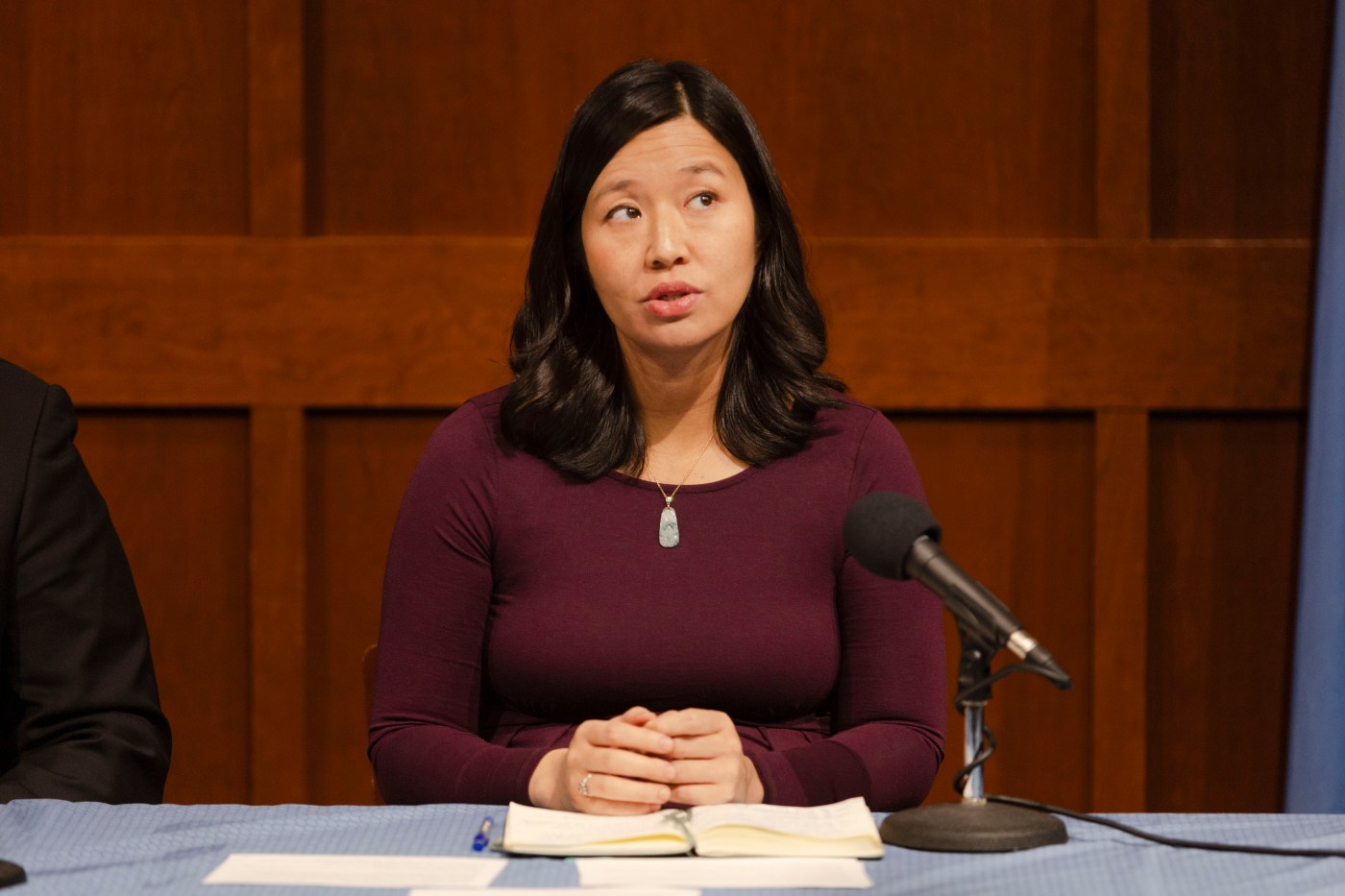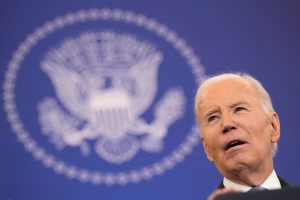
Michelle Wu added 300 new positions to Boston City Hall amid budget crunch
Boston Mayor Michelle Wu in her first term has hired 301 new employees with a third of them earning more than $100,000, as she’s renewed her legislative push for tax relief for homeowners while budget cuts have been raised as an alternative.
Wu, in a Tuesday letter to the City Council, said the average salary among those newly created positions, added over a three-year period since she took office in late 2021, is $84,781.
The total salaries amount to $27.6 million, or 0.6% of the city’s $4.6 billion budget, which grew by 8% this fiscal year.
“These positions represent important investments that have been carefully analyzed through the city’s budget process and deliver key improvements in core key operations and services that our constituents depend on,” Wu wrote.
“Particularly in 2022 and 2023, the administration and Council invested in the staffing necessary to actively recover from both the COVID-19 pandemic and multiple mayoral administration changes which led to significant understaffing and the expiration of all municipal collective bargaining contracts,” the mayor added.
The data was provided by the mayor in response to a 17F request made by Councilor Erin Murphy, by way of a Council tool that compels the mayor to provide the requested information a week after it was approved by the body.
Murphy had first requested the information on Oct. 23, or 85 days ago, and it was finally provided by the mayor on Tuesday, following a threat made by Councilor Ed Flynn that the body would seek to delay the start of Wednesday’s noon meeting until Wu delivered the documents to councilors — and amid a rumor that Murphy intended to follow through on that threat this week.
Of the 301 new positions, 112 and 135 were created in those first two respective years of the Wu administration, 2022 and 2023, with the other 54 added in 2024, from January to November of last year, the mayor’s letter states.
The new hires don’t include staffing increases at Boston Public Schools and quasi agencies, like the Boston Water and Sewer Commission, as those entities have separate budgets and are covered by “separate personnel management systems,” Wu said.
Ninety-seven of the new jobs are for city employees who were hired at more than $100,000 — with pay topping out at $194,300 for the July 2022 addition of the “office of people operations chief,” according to data compiled by Wu’s office.
Murphy took aim at the “troubling” prevalence of high-paying “upper- and middle-management positions” added by the Wu administration, which, the councilor said, include starting salaries “exceeding $80,000 — and many well over $100,000.”
“Adding layers of management risks bloating bureaucracy without delivering tangible benefit to our constituents,” Murphy said in a statement. “At a time when residents are burdened with higher tax bills and the rising cost of living, we must prioritize tightening our belt and ensuring that every dollar spent serves our community directly.”
To that end, Murphy — who raised questions as to why the mayor chose to create certain positions to achieve her letter’s stated goals rather than reallocate or upskill existing staff — said she is calling for a “reevaluation of hiring priorities.”
The review, the councilor said, would focus on expanding entry-level job opportunities that prioritize “local residents,” increasing pay for lower-wage workers, improving transparency by establishing “clearer justifications for the creation of new positions and the allocation of funds,” and protecting the roles of lower-wage employees “in the event of budget cuts.”
Wu refiled legislation Monday that seeks to provide relief for homeowners hammered by double-digit tax increases by shifting more of the city’s tax burden onto businesses, beyond what is allowed by state law.
Related Articles
Editorial: Politicians keep betraying homeowners
White Stadium project opponent says City of Boston can renovate venue for BPS for ‘fraction of the cost’
Prosecutors of Boston City Councilor Tania Fernandes Anderson ask for evidence to be filed under seal
It’s a girl! Boston Mayor Michelle Wu gives birth to healthy baby girl
Boston Mayor Wu’s tax relief bill welcomed by ‘struggling’ senior homeowners, but hammered by real estate industry
The mayor’s prior tax shift bill was approved by the City Council, but failed to pass the Legislature amid criticism that Wu should have instead considered cutting the city’s $4.6 billion budget, which grew by 8% this fiscal year, given the challenges facing the post-pandemic commercial sector.
Prior budgets reviewed by the Herald show city spending has increased by more than $1 billion since the start of the Wu administration.
Wu states in her letter, however, that the new hires represent less than 1% of the city budget and “Boston’s staffing trends are consistent with national municipal employment numbers.”
She also hits on the unique challenge facing her mayoral administration, as the first in Boston to be faced with having the entirety of municipal labor contracts expired at the outset of her first term.
Eighteen months later, all but one of those contracts was closed, Wu said.
The city payroll growth, of 1.4% and 1.7% in 2022 and 2023, is similar to the 1.5% increase of full-time local government jobs nationwide over that same time period, Wu wrote, while citing figures from the U.S. Census Bureau.
Much of the staffing growth, the mayor said, was concentrated in basic city services (67 jobs), human services like community centers and libraries (40) and public safety, where 39 positions were added. That growth, she said, added 311 and 911 call-takers, along with fire and police cadets.
And many of the new positions, Wu added, were “specifically requested or designated by the Council through budget amendments or created through ordinance,” and approved by councilors via the budget process.
Wu points, for example, to the Office of Language and Communications Access and Black Male Advancement, which were created by ordinance and include positions with salaries in the $80,000 to $100,000-plus range.
The mayor also references the Office of Participatory Budgeting, which gives citizens as young as 11 control of a portion of the budget. The office was created by a ballot initiative and includes a number of positions that top off in the six-figure range.
“We are proud of our city workforce who keep Boston running and deliver excellent municipal services each and every day,” Wu said, “and have worked diligently throughout our administration to support our workforce.”
Boston City Councilor Erin Murphy (Stuart Cahill/Boston Herald)


